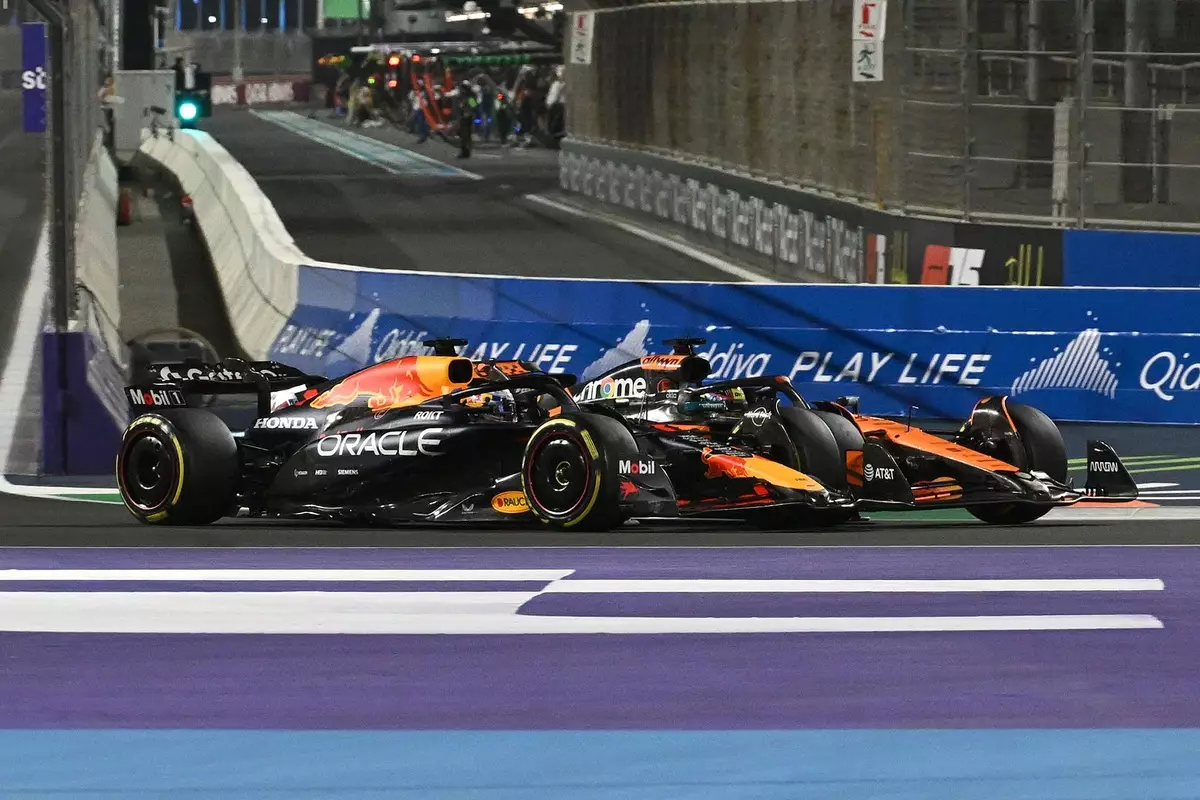In the high-stakes world of Formula 1 racing, few incidents create as much turmoil as those involving penalties for leaving the track and subsequently gaining an advantage. This was epitomized during the recent Saudi Arabian Grand Prix, where Red Bull Racing’s star driver, Max Verstappen, faced a five-second penalty under contentious circumstances. Such decisions not only have immediate implications on race outcomes but also spark broader discussions on regulations and fairness within the sport. Should teams like Red Bull challenge these calls, or is it smarter to let the dust settle?
The Incident: A Racing Duel for the Ages
Verstappen, who started the race from pole position, found himself embroiled in a gripping battle with McLaren’s Oscar Piastri. It was an intense moment typical of Formula 1, where the slightest misjudgment can have significant consequences. Verstappen’s maneuver left him straying off the circuit, a decision that would ultimately lead to the stewards issuing a five-second penalty for gaining an advantage. Despite feeling justified in his actions — arguing that he had been pushed off the track and maintained a lead at the apex of the corner — the FIA stewards interpreted the situation differently. This incident raises questions regarding the nature of racing skill versus the rigidity of rules governing track boundaries.
Red Bull’s Response: Passion Amid Frustration
Following the decision, team principal Christian Horner expressed pronounced dissatisfaction with the race’s officiating. In a clear display of his team’s frustration, he brought printed onboard images to a media scrum, hoping to support Verstappen’s claim of maintaining his position on track. However, despite the contentious nature of the ruling, Red Bull decided not to file for a right-of-review petition against the penalty. This strategic decision reflects a deeply nuanced understanding of the dynamics at play within the Formula 1 regulatory landscape.
Horner’s acknowledgment that a formal protest would likely be unsuccessful indicates a level of maturity within the team’s approach to these situations. Instead of battling for an unlikely reversal, Red Bull opted to engage in dialogue with the stewards and present additional footage, thus maintaining a focus on future races rather than getting mired in past controversies.
The Implications of Not Protesting
Red Bull’s choice not to protest can be viewed through various lenses. On one hand, it signifies a move toward pragmatic decision-making; after all, a protracted dispute could distract the team from their overarching goals in the championship race. Yet, on the other hand, it exposes a potential weakness in the face of perceived injustice. By stepping back from contesting the ruling, Red Bull may risk establishing a precedent that they accept the FIA’s interpretations without challenge, ultimately influencing how future situations are handled.
It is worth critiquing whether this approach embodies wisdom or retreat. The team’s passivity might stem from a sophisticated awareness of how the constant juggling of rules and penalties could potentially destabilize the competitive fabric of their organization. Yet, history has taught us that a firm stance—whether successful or not—often earns more respect and attention, especially in a sport where image matters immensely.
The Broader Context: Competitive Integrity in an Evolving Sport
As Formula 1 continues to evolve, the issue of competitive integrity remains paramount. While penalties like Verstappen’s can seem purely punitive, they also highlight the governing bodies‘ attempt to maintain fairness in a sport where skill, speed, and strategy intersect at breakneck speeds. However, as fans of the sport, we must question whether current regulations truly serve their purpose or simply inhibit thrilling racing moments.
Regulatory practices must adapt not only to technological changes but also to how drivers and teams respond to them. With each passing race, the discussions surrounding rules, penalties, and their impacts need to pacify not just the purists who hold traditional views but also the newer, younger fans drawn to the sport by its exhilarating nature.
In a sport that thrives on speed, tension, and rivalry, the decision made by Red Bull serves as a reflective moment, where strategy, integrity, and resilience coalesce at the heart of competitive racing. How the team chooses to channel this experience moving forward will be as captivating as the races themselves.


Napsat komentář